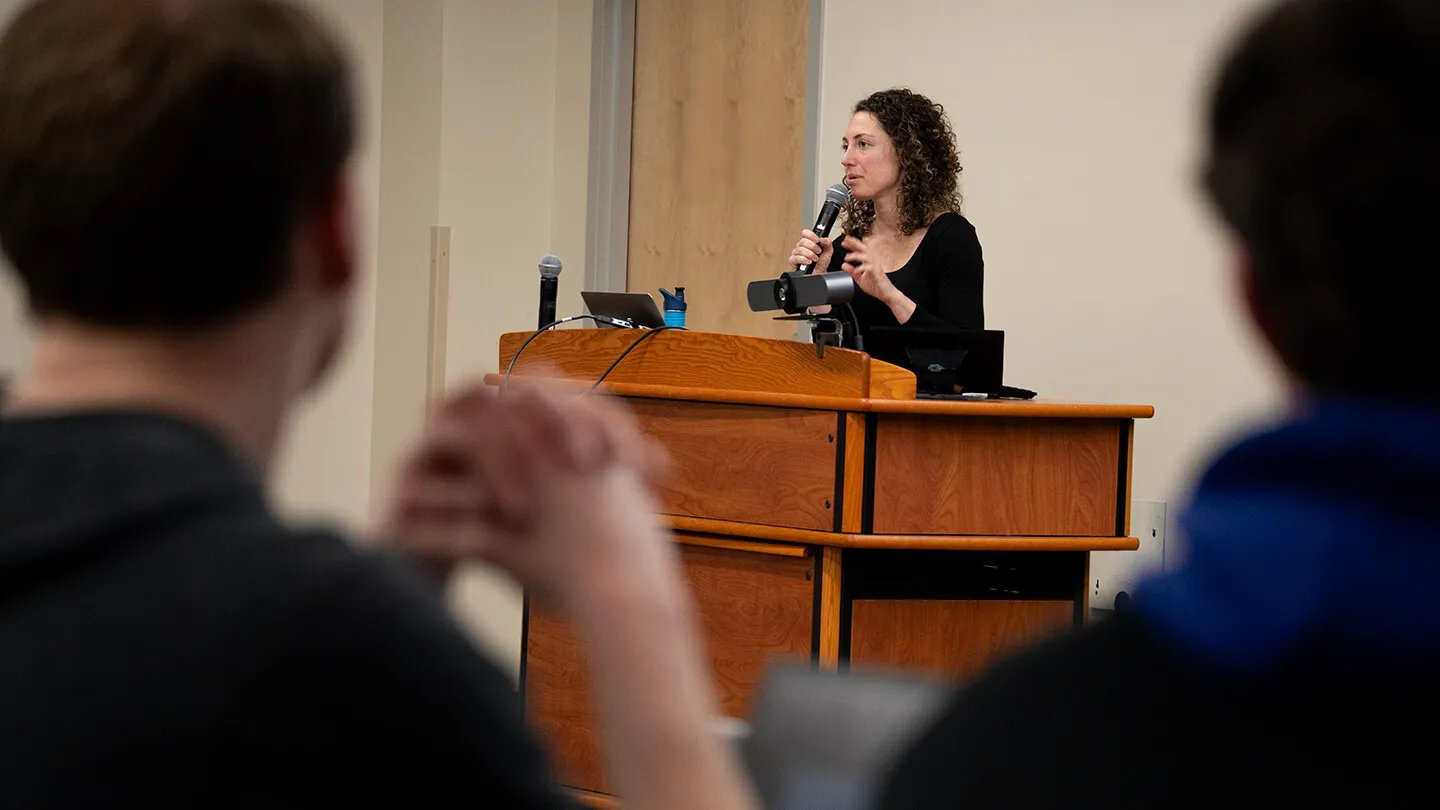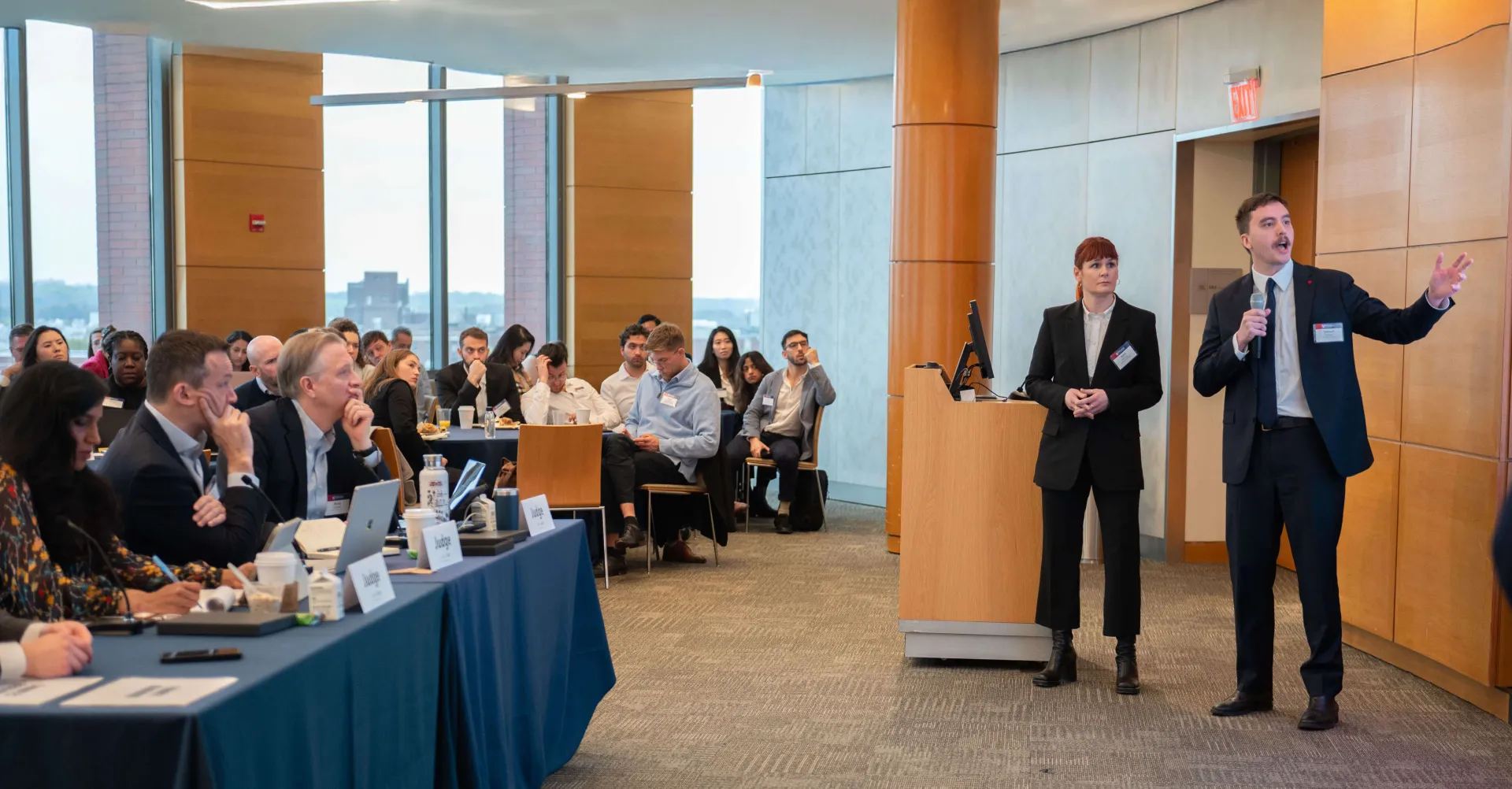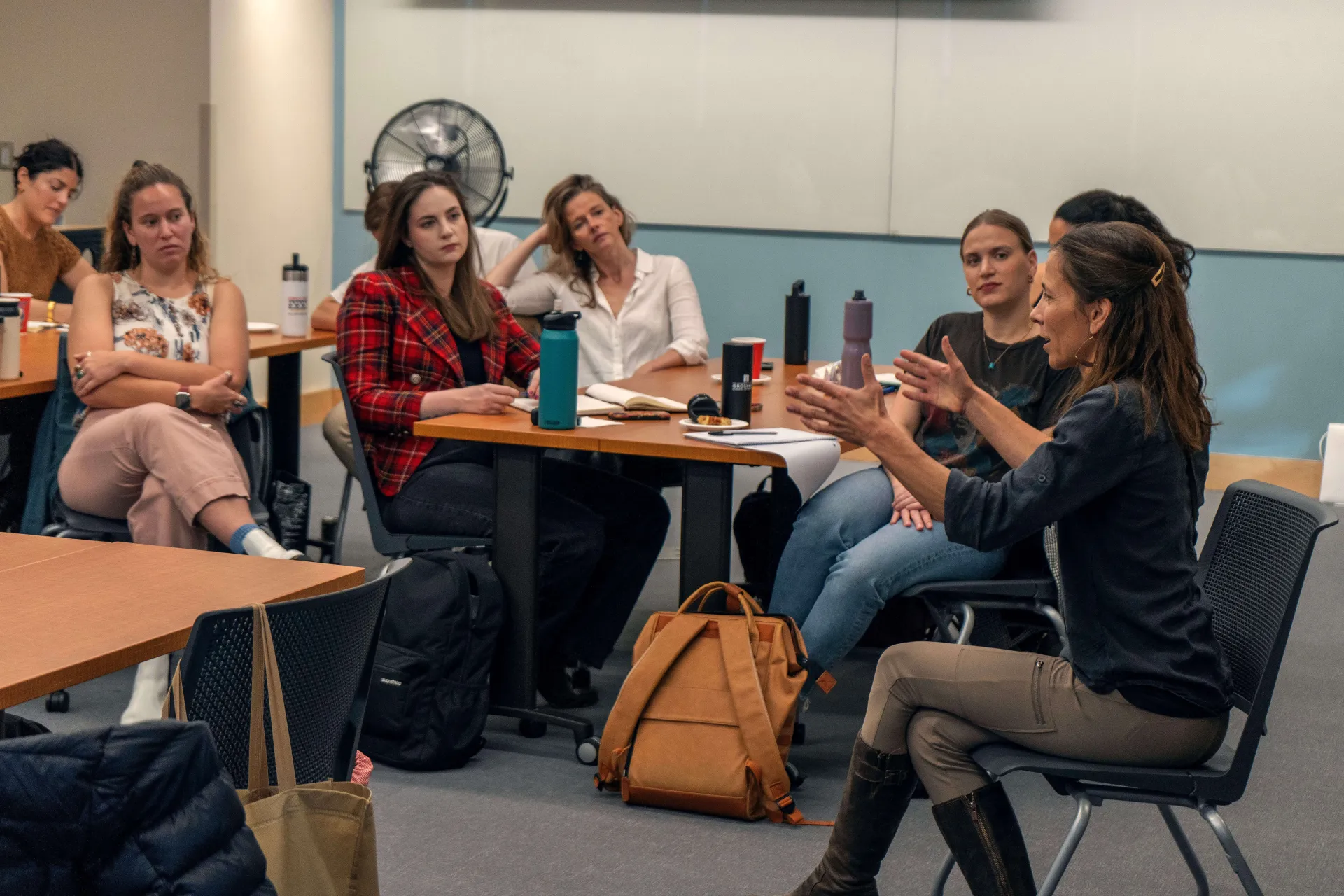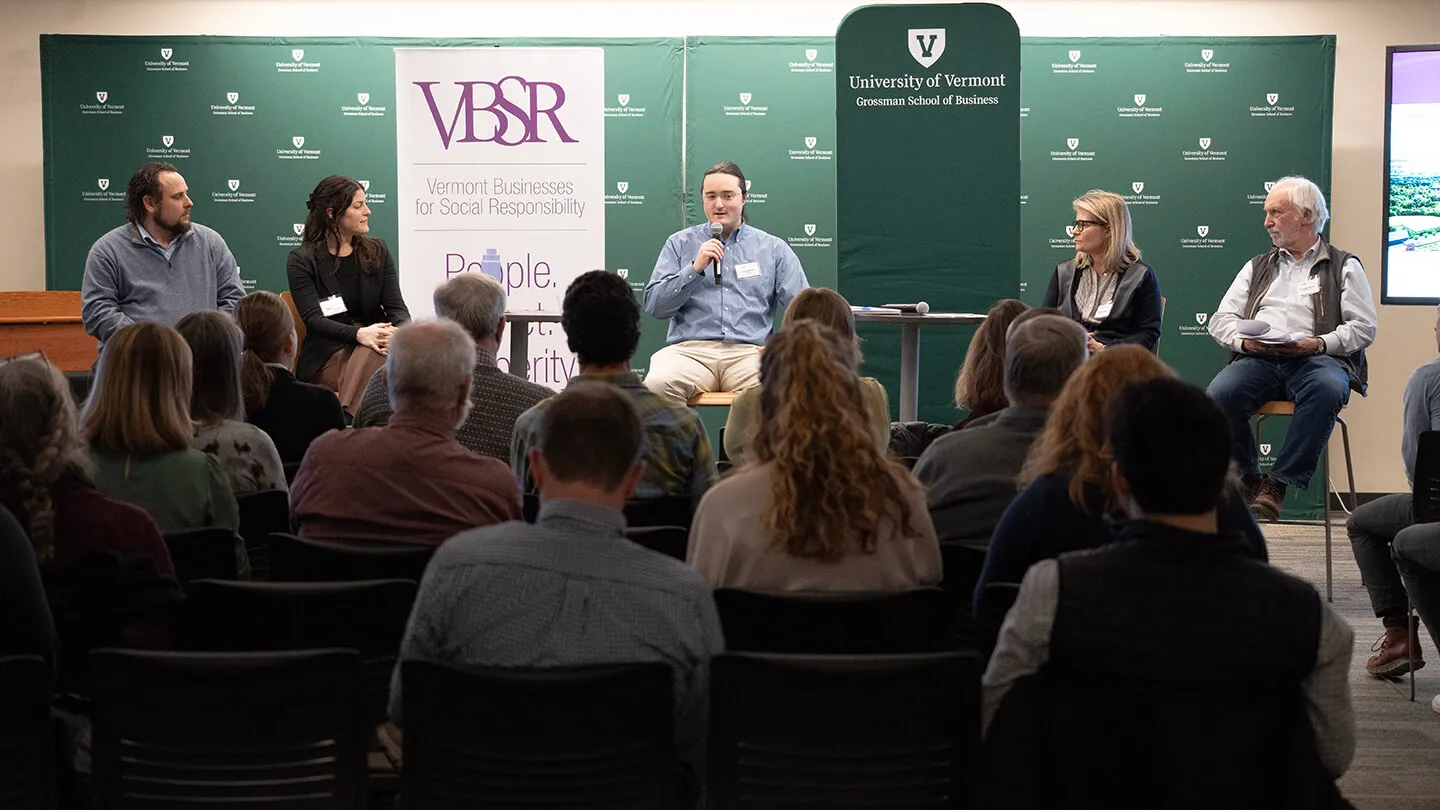The University of Vermont’s Grossman School of Business is launching a new course next semester: AI Applications for Sustainable Business. Building on a dynamic seminar held earlier this spring, the course will equip students with the tools, context, and critical thinking skills needed to apply artificial intelligence (AI) to today’s most pressing sustainability challenges.
Led by Rochelle March, Principal and Co-Founder of Peoples Places Words Actions, the spring seminar introduced students to the real-world applications of AI across sectors like energy, agriculture, biodiversity, and supply chains. March challenged students to view AI not just as a tool, but as a general-purpose technology, comparable to electricity or the internet. These technologies transform how we innovate, optimize, and collaborate.
“To achieve the SDGs by 2030, we need to triple carbon-free energy, double energy efficiency, and reverse biodiversity loss — all in the shortest time in human history,” March noted. “AI may be the most powerful tool we have to meet the scale, complexity, and urgency of this moment.”
Prompting AI to Support Sustainability Workflows
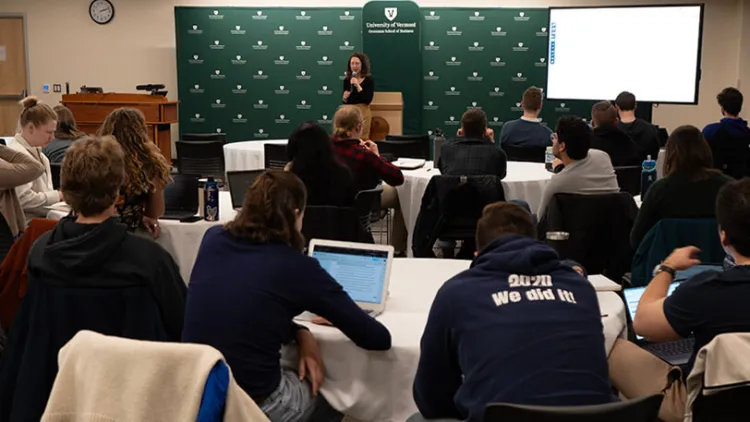
Drawing on her experience in ESG data analytics and AI applications, March guided attendees through the evolution of machine learning and demonstrated how large language models (LLMs) like ChatGPT, Claude, and Gemini are already being used to support sustainability goals, from climate modeling to reporting frameworks.
A live demo brought the concepts to life. By prompting AI tools to engineer a heat-stress mitigation plan for apparel factories, students saw firsthand how prompt engineering, tone shifting, and cross-platform integrations can streamline reporting and spark creative problem-solving.
Yet the session, and the course, go far deeper than technical know-how. March emphasized the ethical implications of AI in sustainability work. “You can’t build a sustainable world on an unethical algorithm,” she cautioned, encouraging students to approach AI through the lenses of fairness, accountability, and transparency.
From the cautionary tale of Amazon’s biased hiring tool to the energy demands of model training, the course invites students to critically explore both the promises and pitfalls of these rapidly evolving technologies.
The seminar wrapped with a roadmap for AI readiness, encouraging sustainability leaders to build fluency, experiment boldly, and embed AI thoughtfully into their workflows. As one student reflected, “This session showed us that the future isn’t about choosing between sustainability or AI — it’s about learning to lead at their intersection.”
The upcoming course will offer students the opportunity to do just that.
About the Author:
Emily Listowich is a current SI-MBA student with a background in outdoor recreation advocacy, nonprofit development, and creative storytelling. A proud Vermont transplant, Emily earned her Bachelor’s degree from UVM’s Rubenstein School in 2018, where she focused on Natural Resources and Community Development. Her professional experience includes managing multimillion-dollar fundraising efforts, directing national film tours, and co-founding UVM’s Chicks on Sticks VT, a club dedicated to inclusivity in snowsports. Passionate about mission-driven work and cross-sector collaboration, Emily aspires to build bridges between the for-profit and nonprofit worlds to strengthen Vermont's communities and economy.
